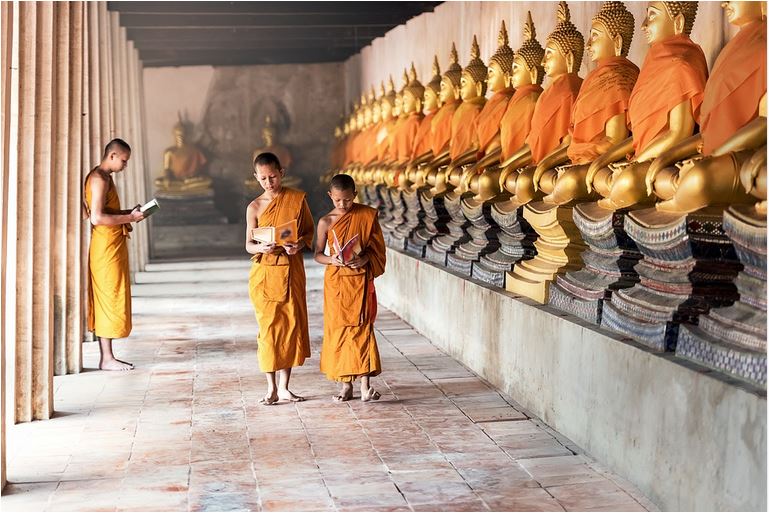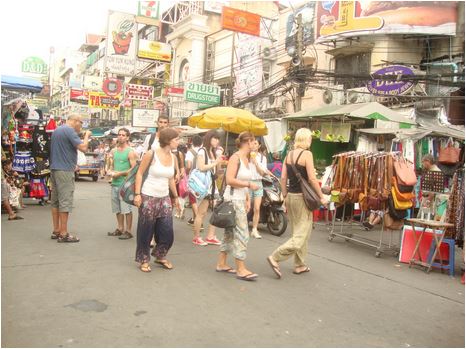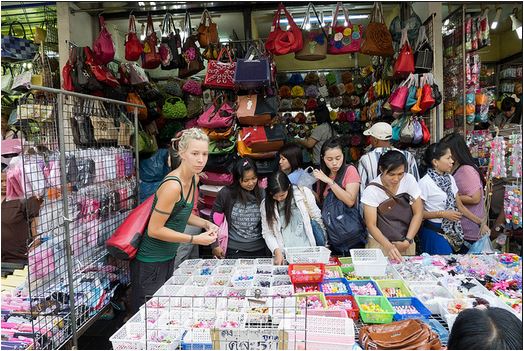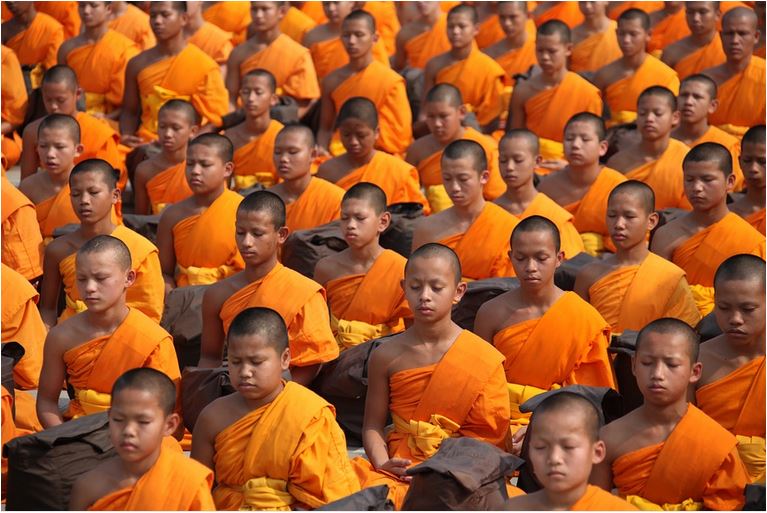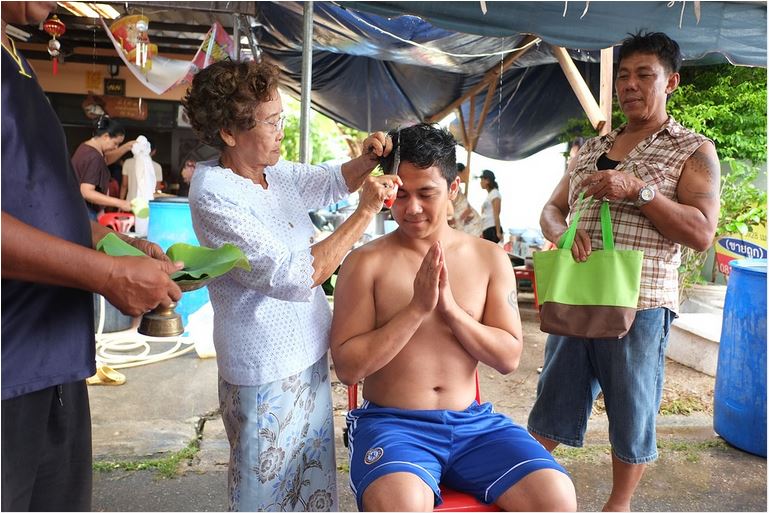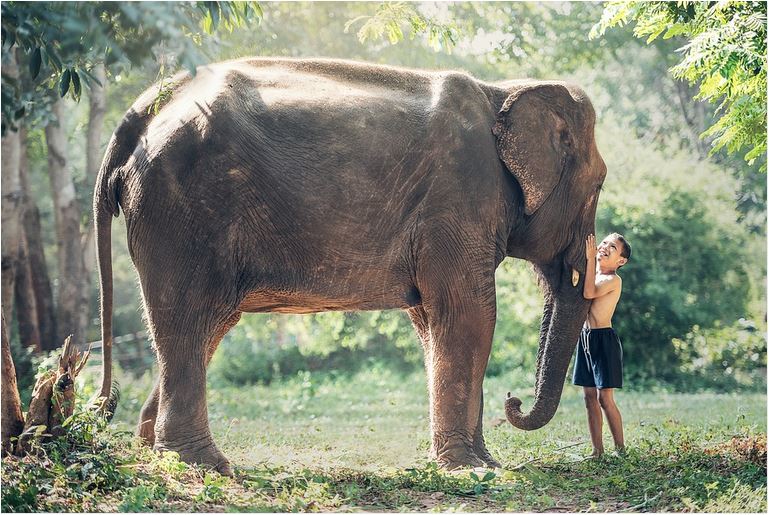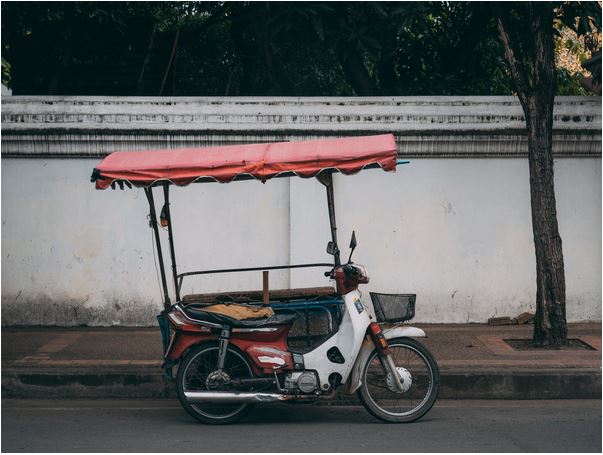
Ten Things Done Differently In Thailand
by: Dennis Carney

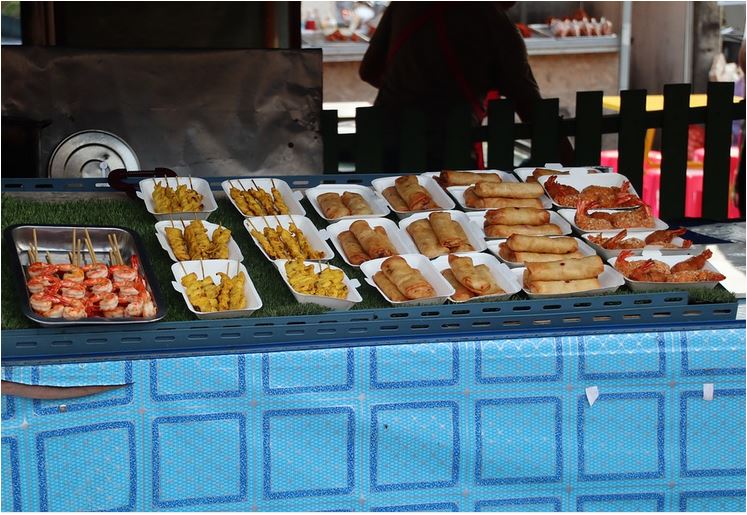
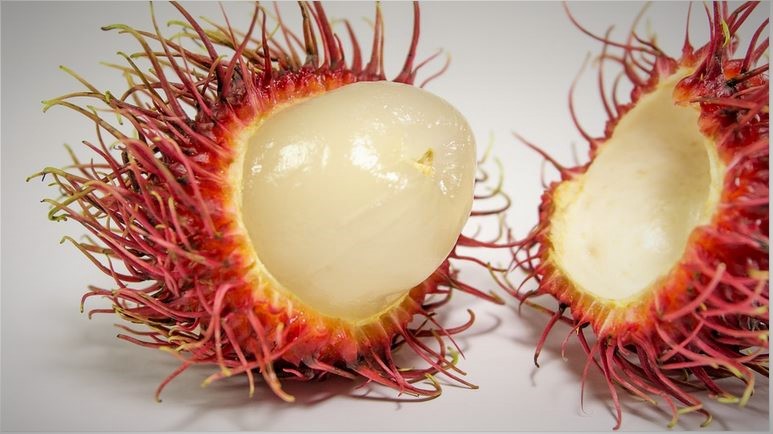
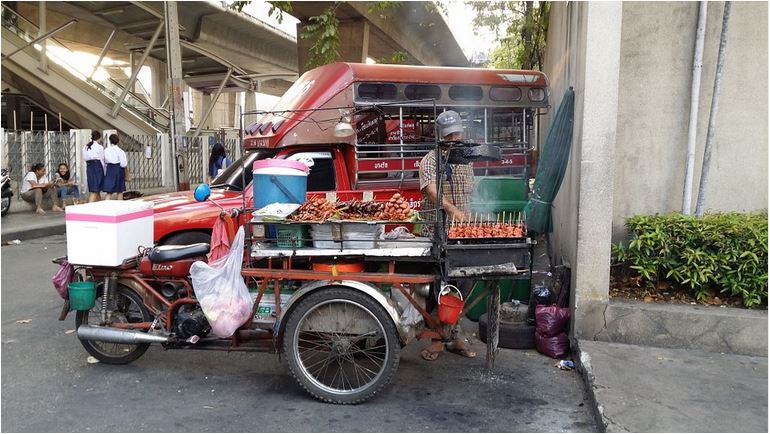
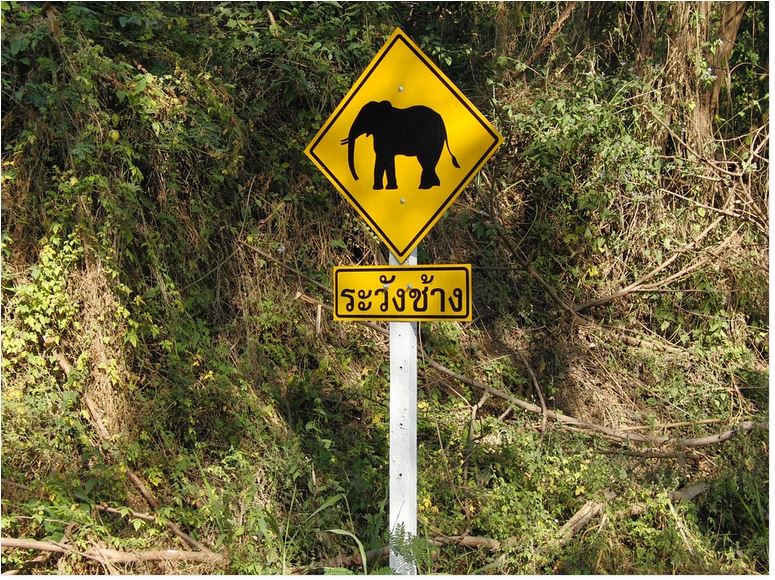
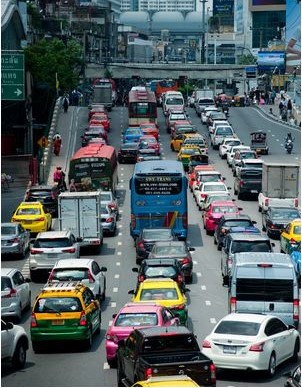
This is the first Post for our new Blog page and I thought it appropriate to write about our host country. Whether you live here full time, spend a significant amount of time here each year or are a tourist on your first trip, it doesn’t take long to realize that Thailand is different. It is not just the exotic temples, the scent of incense or the squiggly foreign writing on street signs. Things are just done differently in Thailand compared to what we are accustomed to back in our home countries. Here are ten things that I picked in no particular order. Eating tops the list but that is only because I was hungry when I wrote this post.
1. Food & Eating:
Thais love to eat. Visit any local Thai restaurant and you will see the table completely covered with food dishes and you will probably think that the people seated at the table could not possibly finish all that food. Wrong! They can and will finish all the food before them. What I find particularly annoying is that no matter how much or how many times a day the Thais eat, they never seem to gain a kilo. I pick up an extra kilo just seeing and smelling all that savory food.
Thais eat differently than we do. They almost exclusively use spoons for eating. A fork may be used occasionally but only to guide the food onto the spoon. Unless steak, pork chops or other western food is on the table, you rarely see a knife accompanying the above mentioned fork and spoon. Fish, chicken, pork, etc. are generally cut with the edge of the spoon.
Another difference is when Thais return to their home villages or even in the privacy of their big city homes, they like to eat on the floor. A family will gather at meal time and sit in a circle on the floor sharing the food that is placed in the center of the group. At first this may look odd to the westerner but it is obvious that Thais enjoy not only the food but the company and communal atmosphere of eating without the barriers of tables and chairs between the people gathered together. During mealtime the little children wander freely about, going from mom to uncle to auntie to papa. It must be great to be a child and talk to a grown-up, sitting at eye level, without straining your neck to look up. I have shared meals with Thai families but my farang (western) knees cannot endure sitting for more than five minutes with legs crossed. I am always graciously offered a chair but somehow feel that I am missing out on the best part of the meal. Oh, and the next time you are dining in an upscale restaurant in Thailand, don’t be surprised if you see a graceful, elegantly dressed Thai lady eating demurely while sitting cross legged on the chair. Old habits are difficult to shake.
Last but not least are the street food vendors. This is more common in Bangkok than anywhere else. There are just so many people in the capital and the restaurants could never accomodate everyone. Sidewalk food vendors serve tasty and quick dishes at reasonable prices. Sadly the government has cracked down on this popular venue and it may soon become a nostalgic relic of the past. In the Pattaya/Sattahip area street food is still available but not the sit-down style in Bangkok. Here you can buy fruits, snacks and grilled fish and meats to take away. I recommend the Rompho Market in Jomtien where fresh fruit, vegetables, fish and meats are on sale and there is an eating area which comes close to the Bangkok style of outdoor dining.
2. Driving
Anyone who has ever driven in Thailand knows that it can be, how shall I say it, very challenging and downright dangerous. My driving experience here is limited to cars and not motorbikes. I don’t ride motorcycles and even if I did I would think twice before venturing on to the road in Thailand. For some unknown reason Thais, who are amongst the most polite people in the world, become ruthless aggressive sociopaths behind the wheel of a car… and I am just talking about the lady drivers. The men are even worse. Here are some of the bad driving habits encountered in Thailand. It is common for drivers to ride close to your rear bumper or what we, in America, call tailgating. Thai drivers also think nothing of cutting in front of you. It seems that some Thais think that the closer they can get without actually causing a collision is a demonstration of their superior driving skills. Street driving while slower than the motorway is, in my opinion, more dangerous. Here motorcycles, bicycles, buses, trucks and other cars are all competing for your driving lane. Just to make it more exciting oncoming motorcycles, buses or cars will veer into your lane to pass a vehicle in their lane. I often say driving in Thailand is like playing a video game with villains suddenly appearing on the screen. The only difference is that we don’t have a villain blaster mounted on the front of our cars.
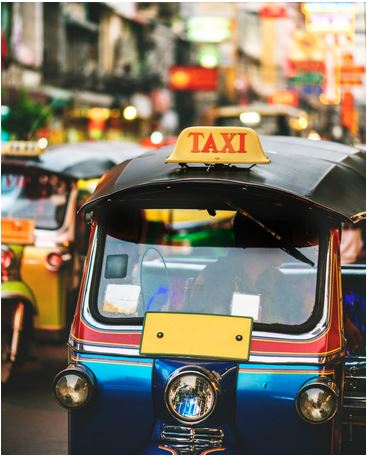
3. The Land of Smiles
As we know, Thailand is justifiably called the Land of Smiles and it is true. Wherever you go Thais are smiling, at each other, at strangers and just about anywhere you look. I mentioned this one time to a cynical and world-weary, grizzled old ex-pat who had been in Thailand a long time. He said that the only time Thais smile is when they want something or think they can make money from you. Did I mention that he was cynical? Nevertheless, I was surprised to hear him say that, especially since he continued to live here after so many years. So, I decided to put his words to the test. As soon as we parted company I planned to smile at the first person I saw and see what happens. As luck would have it the first person was an elderly man even older than the ex-pat. His back was bent with the weight of his years and he was shuffling down the street. We made eye contact and I smiled. The old man looked at me for about two heartbeats and then gave me one of the warmest, friendliest smiles I have ever seen. He stood a little taller and his face somehow appeared years younger at that moment. We never said a word to each other and continued on our separate ways. Out of the corner of my eye I noticed he was no longer shuffling along and there was a slight, almost imperceptible, bounce to his step. My faith in the famous Thai smile was fully restored.
4. No Refunds
Thailand may be known as “The Land of Smiles” but it could also be called “The Land of No Refunds”. Have you ever tried to get a refund in Thailand? If you have then you know it is nearly impossible. Even getting an item exchanged is almost as hard. A few years ago, when we were living in Bangkok, I received an iPad Air 2 as a gift. I liked it so much I decided to purchase the case to go with it. When I returned home I took the brand new case from the box and realized that it didn’t quite fit right. I was very busy at the time but within a few days I returned to the Apple store and told them the case did not fit properly and that I wanted to exchange it for one that did. After much discussion and showing my receipt (with No Refunds printed on the front) to three different people it became evident that Apple had somehow put the iPad Air 2 case in the wrong box. I had no idea how they managed to do this but it was clearly Apple’s problem. That is until it became my problem. I won’t go into the details but it took three days and three visits to the Apple store to finally get the correct case that was made for the iPad Air 2. Now when I buy any product I do exactly what the Thais do. Whether it is an electric light bulb or a big screen TV, I have them test it in the store where I can see for myself that it is functioning properly. If you don’t prove that an item works in the store don’t even bother to return it after you get it home. If you do you will be told politely by the clerk, “Sorry, no refunds.” Of course he will give you the sad news with a lovely Thai smile.
5. Modesty
Thais are very modest and shy people, especially the women. Now, a male tourist, who has spent his entire two week vacation enjoying the night scene in Pattaya, might scoff at this. However, if that is all he saw while in Thailand then he has a distorted view of Thailand and the people. Thais in general are not as uninhibited as the ones who work in the entertainment section of Pattaya. For example, Thais do not engage in public displays of affection. You may see a Thai couple holding hands in public but kissing or hugging is quite uncommon. If you don’t believe me, then the next time you are on the beach watch the Thais who are enjoying a day by the ocean. It is very rare to see a Thai lady wearing a western style bathing suit. Have you ever noticed this? When they venture into the water they usually wear the same shorts they use on the street and whatever top they wore that day. You will not see Thai ladies wearing skimpy bathing suits or bikinis.
I have a western (farang) friend who has been married to a Thai woman for over ten years and they have two beautiful children. One day we were talking about this same subject and he told me that after all these years of marriage, whenever his wife gets up in the morning to take a shower she wraps a towel around herself before parading into the bathroom. She is the mother of two children and does this in front of her husband. Now that is what I call modesty.

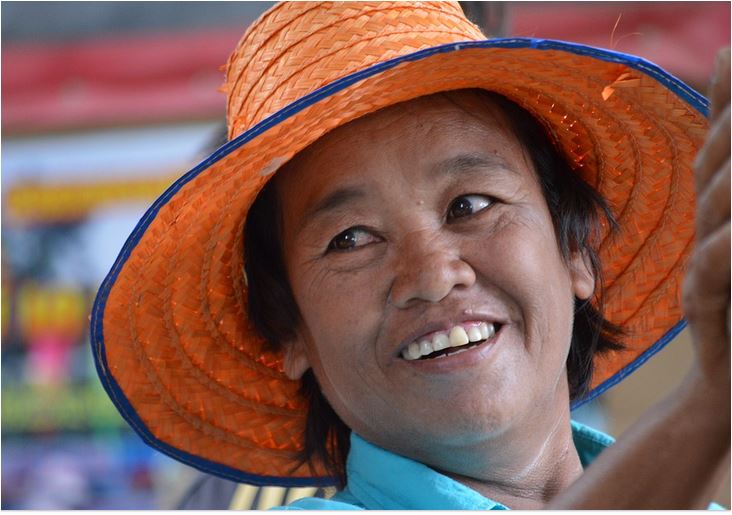



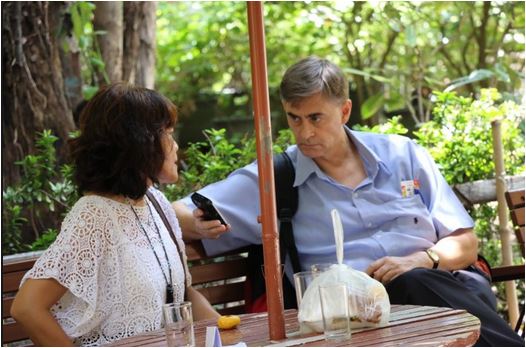
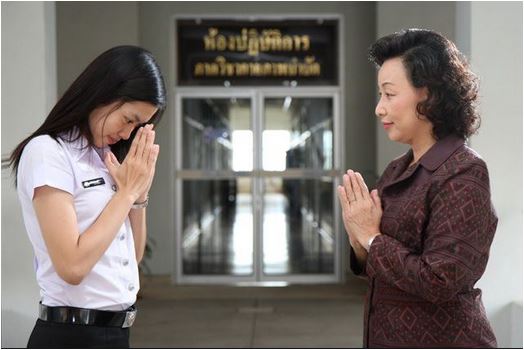

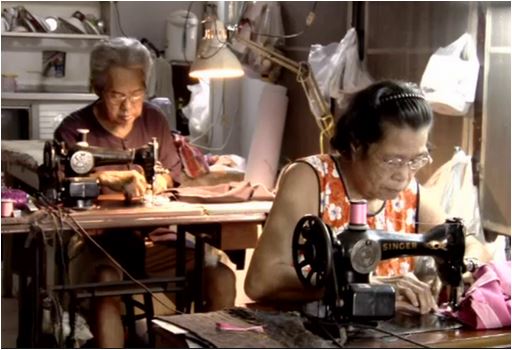
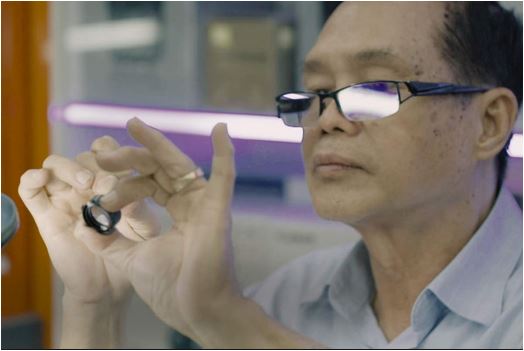
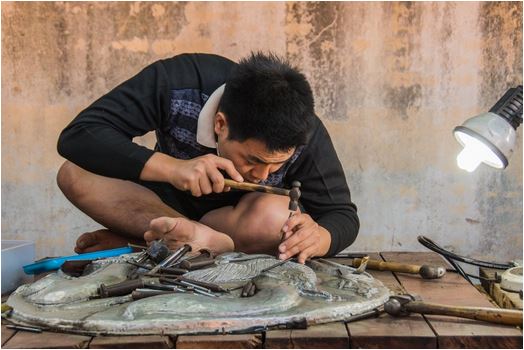
6. Thais Don’t Lie… but
OK, that is a bit misleading. Of course Thais tell lies or fibs just like any other group of people on the planet. I am referring to situations when a Thai may say something that seems obviously contrary to the facts or your personal experience. The difference between what appears to be an untruth and what a Thai perceives as a completely reasonable answer is oftentimes based on cultural differences.
To understand this we must first understand a little about Thais. They do not like confrontations or angry disputes and will do almost anything to avoid them. Next, if you are a friend, co-worker, customer or a person in a position of authority, when dealing with Thais they will often provide the answer that they think you want to hear. “Will this report be ready by Friday?” “Yes, boss, no problem.” That is what the Thai thinks the boss wants to hear and if it is not ready by Friday, then it can be dealt with then but not just now. The last thing we should consider is “face”. The closest equivalent in western society is reputation or dignity. For a Thai the significance of losing face cannot be overstated. They will do or say just about anything rather than lose face. To save face a Thai will do the expedient and what is either true or false is not a primary concern. That is one of the ten things done differently in Thailand. We don’t always get a direct answer when we ask a Thai a direct question. That is why Thais often answer the most straightforward question with, “Up to you.” Maybe Thailand should also be called “The Land of Ambiguity”. Another friend one time asked his long term girlfriend if she loved him. She answered, “Up to you.” He has lived in the kingdom for many years and was okay with that answer.
7. Thai Wai
About the only time a Thai shakes hands is when a foreigner thrusts his hand forward western style. Thais traditionally wai one another. When greeting another person, whether Thai or foreigner, the hands are held together in front of the chest as if in prayer and with a slight bow the person says “Sawadee ka” (female) or “Sawadee krap” (male and the “r” is generally not pronounced). So, greetings are definitely done differently in Thailand. There also is a pecking order governing who offers the first wai. If you want to be polite to Thais but are unsure of the correct etiquette, a good rule of thumb is to initiate the wai to an older person. However, rank has its privilege and even though you may be older than the other person, if his social position is higher than yours then you go first. For example, a gardener in his sixties would wai to the master of the house first even if t owner is twenty years younger. The younger man is higher on the social ladder so, in this case, the older man initiates the wai. Another example is at the Thai Immigration office. Even if the Thai Immigration officer is younger than you, in this case, you should initiate the wai because his/her position of authority places him/her above you in the wai hierarchy. Also the person offering the first wai should always hold their hands higher than the person responding to the greeting. If you find all this confusing and are in doubt just go ahead and wai first. Thais are very polite and even if you make a mistake they will invariably return the wai out of respect. At first it may seem strange or awkward to perform the wai but with a little practice you will not only get better at it but will appreciate its true worth as a social lubricant. Primarily, it is a sign of mutual respect and it never hurts to begin an introduction, a conversation or even a business negotiation in a respectful manner. Things just seem to go smoother after that.
8. Thais Can Fix Stuff
I don’t know about your home country but there was a time in America when things were built to last. When something got torn, broken or didn’t work anymore, we either fixed it or paid someone else, like the local mechanic or electrician, to make it right again. That was a long time ago and we now live in a disposable era. When an object no longer works properly, which seems to occur more frequently with every passing year, we just throw it away and get a new one. In Thailand they do this differently. Well, not really differently but more like we used to do about 50 years ago. If your car doesn’t run or your shirt is torn or that washer is leaking there is a skilled Thai who can fix it. There is no job too big or small that a Thai won’t mend it, repair it, patch it up as good as new or find the right replacement part.
Not all trades people are the same and, like anywhere else, there are some who are highly skilled while others are less professional and some are downright cheats and frauds. It is always best to rely on recommendations from friends and neighbors. In fact, that is why the Recommend page has been added to our website. To be able to find a reliable mechanic, plumber, seamstress, etc. is essential to making our life better and more comfortable in the Land of Smiles. This is especially true when your favorite shorts have a tear, or the TV is not working. It may be expensive to replace or, as in the case of those favorite shorts that fit just right, a replacement sometimes cannot be found anywhere. That is the time to have someone fix the problem quickly, professionally and inexpensively.
On two occasions professional repairmen have saved us a lot of money. The screen on our 55 inch TV developed a dark band across the top of the screen. Two Samsung technicians looked it over and told us it would cost 30,000 baht to replace the screen. A friend recommended a local repairman who identified the problem, took the TV to his shop/home and fixed it in a couple of days. The cost was 7,000 baht compared to 30,000 for a replacement and much more for a new TV. Our old one is like brand new and the picture is perfect. The second time was when we discovered a leak in the Jacuzzi in the bathroom in the master bedroom. I priced a new one at one of big stores on Sukhumvit Road and it was 150,000 baht. Luckily we found a repairman who drove down from Bangkok, installed a new motor, changed all the old hoses and fittings and stayed to prove that there were no more leaks. He charged 30,000 for all this including the new motor. When it comes to fixing and repairing, I am glad that Thais still do things the old fashioned way.
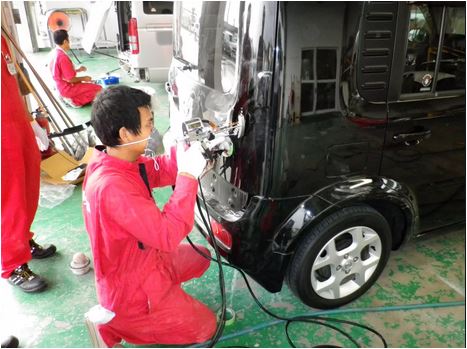
9. Prices in Shops
If you are shopping at Big C, Lotus or Central Festival the prices are fixed. Just about everywhere else prices are, shall we say, more flexible. When you shop at a local shop, night market or almost any venue, consider the marked price more as a suggestion. In Thailand haggling over price (it’s called “negotiating” if it is an expensive item) is customary and expected. I think sellers are a little offended when a buyer doesn’t want to dicker or match bargaining skills. I have seen tourists about to pay full price for a souvenir and the shop owner, apparently feeling a little guilty that there was no give and take, will throw in a discount without being asked, “OK, you nice lady I give 10% discount today.”
Whenever friends visit Thailand for the first time, I tell them that the basic rules of haggling are pretty simple. The seller sets the price ridiculously high and the buyer counters with an equally ridiculous low offer. The seller will come down in small increments and the buyer will make a show of grudgingly increasing his offer in small increments. This dance continues until one side throws up their hands and say, “OK, you win, that is the final price.” A good rule of thumb is to end up paying roughly half the original asking price. If the buyer really wants the item in question then the final price will be a bit higher than 50% but how do you put a price on the fun of haggling and friendly banter? I will leave you with one piece of friendly advice. Don’t push the seller too hard, especially the walking vendors who carry their wares from place to place. The extra 40 or 50 baht that you might squeeze from the seller probably doesn’t mean much to you but to the person trying to earn some money for the family it could mean not putting a piece of fish or chicken in the rice bowl for the kids that night. Always keep it friendly and have some fun when you haggle over price and remember the basic rules when you purchase that next fake Rolex.
10. Buddhist Monks
Buddhist monks are an integral part of life in Thailand and they can be seen everywhere in their saffron colored robes. Their heads are shaved and some have tattoos but essentially they are similar to the priests, ministers and rabbis in western countries. They are all men of God who offer prayers for various intentions and bring spiritual comfort to those who seek their guidance. So, why do they appear in my list of ten things done differently in Thailand? Here is the difference. The religious clerics in western countries usually make a lifelong commitment to serve God and their community. That is what is done differently in Thailand.
Of course, in Thailand there are countless monks who devote their entire lives to their faith. This is quite different from what is known in Thailand as short term ordination which can be from a week to several months. Every Thai man is expected to be ordained a monk and it is more common to do so before marriage. Being ordained before getting married indicates that the man will be a good, thoughtful and devoted husband to his wife. When a man is ordained he honors his family by showing respect, obedience, gratitude and devotion. This practice is part of the fabric of Thai society.
I first learned about this practice when I attended an ordination in Surin, Thailand. The occasion was a mixture of piety and celebration. There was plenty to to eat and drink and even a parade with the future monk riding an elephant through the village. One of the most emotional moments was when the family cut Ong’s hair short before shaving his head. The monks who were to perform the ordination were patiently sitting together on the floor of the temple waiting for us. People offered the monks food and when finished there was praying and chanting and rituals that I did not understand but respectfully observed. My recollection of the event is one marked by prayer and holiness, solemnity and pomp, celebration and joy and much familial pride in the newly ordained monk. I asked a family member if Ong was going to remain in Surin and serve there as a monk. Imagine my surprise when I learned that he was returning to work in Bangkok in a week. At first it seemed like an awful big fuss for only a week. Then I thought about it for a while and realized that there is a lot of preparation before a Thai man becomes a monk, even if for a week. In Thailand it does not matter if a man is a monk for a week, a month or years. By being ordained he has brought great honor and merit to his family and it is believed that he will be a better person for the time he spent as a monk. The hair on his shaved head eventually grows back but the spiritual change and desire to be a better person lasts a lifetime.
I hope you enjoyed this post and, if you give it some thought, I am sure you will find at least another ten things done differently in Thailand.
